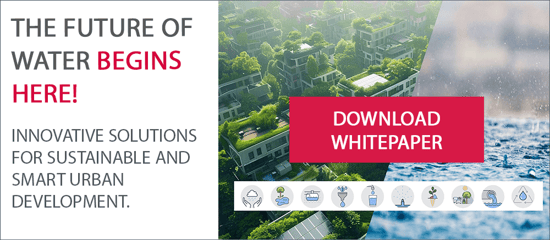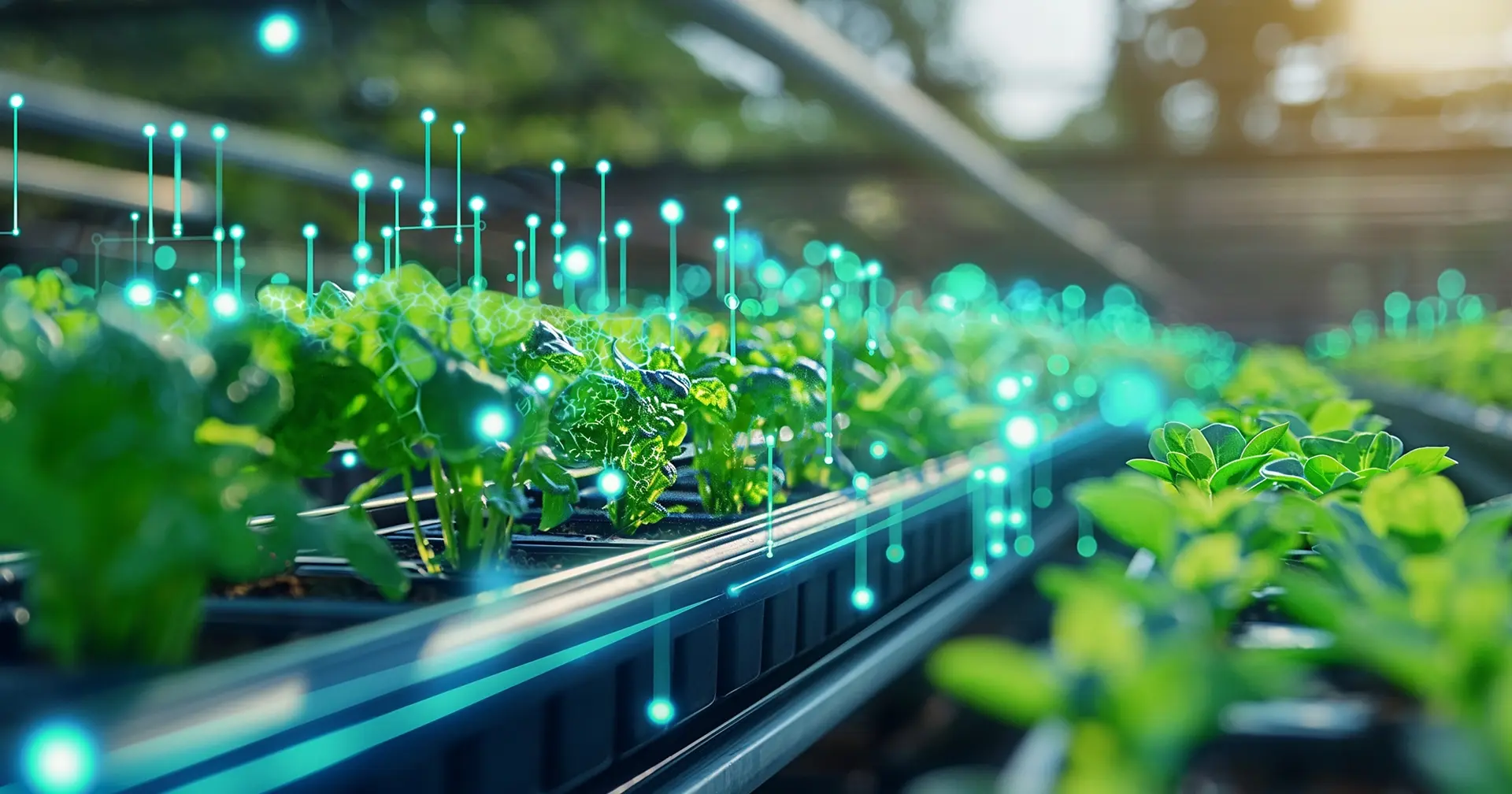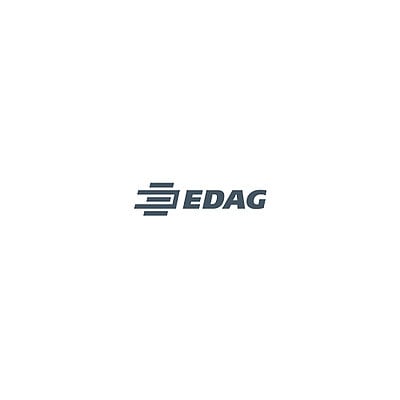Safeguarding the drinking water supply in the long term, saving municipal green spaces during periods of drought and making cities and municipalities resilient to heavy rainfall events - when it comes to water, public authorities and companies have to overcome very different challenges. If you take a closer look, you will see that there are indeed links between the individual areas - and that such "integration" simplifies problem solving. Smart water management promotes efficiency in strategic planning and operational management. This reduces costs and also helps the environment, the climate - and not least the citizens.
Melting glaciers and a lack of precipitation, longer periods of drought and an increase in heavy rainfall events are all contributing to soils drying out and groundwater levels falling, as are the levels of rivers from which bank filtrate is extracted. Drinking water is therefore an increasingly scarce resource that must be treated with care.
The cities and municipalities are tackling this task. However, there is still great potential for improvement. Despite constant investment in infrastructure, various estimates suggest that between 5 and 10 percent of drinking water seeps into the ground unused due to leaks, while the figure for Europe as a whole is up to 23 percent.
In addition, water is wasted with irrigation methods that are not very smart. At the same time, areas and plants remain unsupplied, leading toduring dry periods. Replanting causes costs, while at the same time there is no cooling effect on the inner-city climate during hot spells.
Due to more frequent flooding as a result of heavy rainfall events, wastewater systems are being upgraded in many places in order to drain rainfall as quickly as possible. Such projects are only used to a limited extent to create reservoirs that can provide water for irrigation. And here too, unnoticed leaks and malfunctions repeatedly lead to water loss.
The result is losses for both the environment and the public purse. Smart Water Management offers various starting points for solving such problems intelligently and thus both saving costs and improving the quality of life in the city or municipality.
Database from the Internet of Things
When it comes to the multifaceted topic of water, it is particularly important to create a meaningful data platform that includes all aspects. Various sensors can contribute to this, which together form an Internet of Things (IoT), which in turn enables the creation of a digital twin of the municipality in terms of water.
To name a few examples: Soil moisture sensors monitor the water content of the soil, while water level sensors measure the water level in bodies of water and reservoirs. Precipitation sensors record the quantities of water that contribute to the general water balance. Flow and evaporation sensors in turn help to detect and prevent water loss. In addition, location, temperature, wind, water quality and other sensors can provide further important data that is relevant for optimal water supply and irrigation control.
Integrated data platform
All of this data is integrated on a data platform as part of a seamless, modular overall system, which is merged with existing and third-party systems where necessary. Here, the data is harmonized, analysed and enriched in order to be as meaningful as possible. Finally, the available information is visualized via dashboards - again as required. There may be one for irrigation, one for detecting and managing heavy rainfall, one for wastewater management and whatever else is needed.

It is important to note that although there are different players with different tasks, they all ultimately access a standardized data platform. In other words, there are no different data statuses in the various departments, no siloed data that is not available to other departments, and no different or incompatible or decoupled software solutions that each have to be maintained separately.
The role of anticipatory systems
Predictive systems play a key role in increasing the efficiency of water use. They are based on historical data and the combined expertise of hydrologists, botanists, gardeners, landscape architects and urban planners, among others, as well as on information from citizens, for example about drying trees or blockages in watercourses, which is received via deficiency alarms.
These systems take into account the urban water cycle, the nature and capacity of the soil to absorb water, the level of the groundwater table or the situation of rivers in water-bearing layers, the water requirements of different types of plants - also taking into account their sensitivity to drought - and the design of optimized urban infrastructure. This enables precise irrigation planning, which supports the vitality of urban green spaces and plantings through to arable land and keeps the cycle in balance.
Added value of an urban ecosystem
Optimizing the irrigation management of urban green spaces offers numerous advantages. It contributes to the sustainable development of urban regions by improving the quality of stay, recreation and life of citizens (and other residents) and visitors while reducing water consumption.
Plants contribute to air purification, natural cooling and noise control, provide a habitat for wildlife and increase the aesthetic quality, resilience and adaptability of the city. These benefits are technically referred to as "ecosystem services" and contribute to the creation of a healthier and more pleasant urban environment.

The available data can also be used to support strategic administrative decisions. For example, in the implementation of concepts such as the "sponge city", in which water is not drained off as quickly as possible, but is temporarily stored in canals and caverns and is then available for irrigation purposes during dry periods.
External support required
Setting up a central data platform and integrating it with the various data sources and existing systems, interpreting the data and implementing the resulting findings in practice pose enormous challenges for many cities and municipalities. They are often looking for experienced partners to help them sort out the complex tasks and solve them step by step.
This is where EDAG Production Solutions, with its many years of expertise as an independent engineering service provider, comes in. The EDAG specialists have successfully transferred digitalization concepts from industry to smart city applications. This is because such municipal solutions also involve the realization and implementation of networked, data-based solutions, such as for smart irrigation management.
The EDAG Group offers the right services and solutions for cities and municipalities and their challenges, from holistic, strategic consulting to funding applications, support with tenders and partnering, procurement, installation, commissioning and sensor care, through to the development of modular software systems and interfaces, as well as operation via its own managed services.
Would you also like to find out more about the potential of digitally optimized municipal water management? Then talk to our expert Nico Marzian, Project Manager & Business Development Manager Smart City & Smart Infrastructure. He can also advise you on options for other smart city topics, such as smart traffic management, smart waste management and both traditional and new forms of agriculture (smart farming). Or download our white paper "Smart Water Management - Overcoming Challenges Intelligently" here, which highlights the possibilities of intelligent water management and also presents other practical applications.






